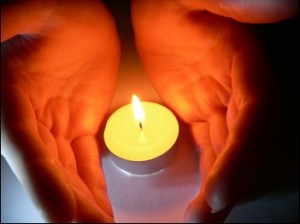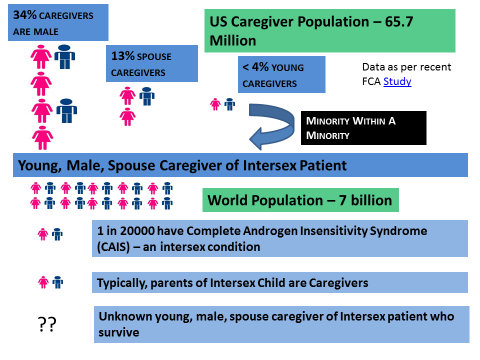 As caregivers, we all need a plan for us to go on. Caregivers Support Groups are fantastic and do a lot towards achieving this common goal of healing. It is even more beneficial that there are specific caregivers support groups by different ailments which specifically address issues unique to that group. In a sense, it gives a sense of belonging, a family, to the caregivers who are otherwise going about their routine because of their good-natured heart. Because of this good-natured heart, caregivers often put themselves last and always put their loved ones ahead of themselves. The Caregiver Healing Plan is about life with caregiving and life after caregiving. Life must go on and let us make sure inadvertently we do not make caregivers into “new” patients.
As caregivers, we all need a plan for us to go on. Caregivers Support Groups are fantastic and do a lot towards achieving this common goal of healing. It is even more beneficial that there are specific caregivers support groups by different ailments which specifically address issues unique to that group. In a sense, it gives a sense of belonging, a family, to the caregivers who are otherwise going about their routine because of their good-natured heart. Because of this good-natured heart, caregivers often put themselves last and always put their loved ones ahead of themselves. The Caregiver Healing Plan is about life with caregiving and life after caregiving. Life must go on and let us make sure inadvertently we do not make caregivers into “new” patients.
In order to begin the healing either while caregiving or after caregiving, it is first important to recognize the facts. Take a self-assessment stress test to see if you are experiencing any of these issues. While this is not a medical recommendation of any sort, it will give you an idea whether to seek professional help.
A few years ago and still today in lot of families, it is taboo to discuss living wills. But ask any financial advisor and they will tell you that it is prudent to have a living will to make lives smoother in case of the unforeseen. The message is to plan ahead and plan for the future. Similarly, it is important for every caregiver to have a Caregiver Healing Plan. All caregiver support groups should provide a specialized Caregiver Healing Plan specific to their cause to all their caregivers. For example, caregivers of Alzheimer’s where a patient passes away or a cancer patient passes away may have different needs than a patient with rare diseases who survives. It is important to keep the caregiver in mind when thinking about the Caregiver Healing Plan. There are plenty of intelligent minds already working on a healing plan for the patient. The caregiver cares about the patient, a loved one, and they want a plan that satisfies both.
There are plenty of good suggestions/articles on Caregiver Bill of Rights. I will not take up space here to re-iterate the same points and state that readers of this article are understood to be familiar with Caregiver Bill of Rights. The Caregiver Healing Plan is intensely focused on healing of the caregiver and needs of the caregiver. It is with this intention in mind, that the following suggestions are made for the Caregiver Healing Plan.
Caregiver Healing Plan
1. Get a “punching bag”. Let it out.
Whether it’s a real punching bag or a bag of chips or listening to music or creating music or a notebook to write your thoughts or sharing with support groups, family and close friends. The idea is to let it out. The healing process does not “start” or “stop” – it is always ongoing. Sometimes a distant memory several years later may trigger something in you as a caregiver and wish things could be different – the healing process will help you then also. Learn to let it out. The good-natured energy that is in every caregiver needs to be shared. So let it out.
2. Exercise.
There is a huge connection between the mind and the body. I am no doctor and the only proof I have to offer is I have experienced it. Anyone who has experienced the joy and rewards of exercise and the mind and body working in tandem can attest to this. Exercise per your physician’s recommendations. Running, walking, cardiac activities are great if your body allows it. If the body is unable, doing simple stretches or even exercising the toes or fingers would be great. It is not about the quantity, it is about getting into the routine. Make sure you change into your “exercise clothes”, schedule the activity, and eat healthy. If you have an activity planned, your mind will be very focused.
3. Paperwork and Self-Care.
As caregivers, we are constantly inundated with paperwork and organizing it. We also have to study up on new topics which sometimes are like Greek and Latin. Most caregivers are very well-organized. But caregivers forget to organize their own paperwork. When was the last time you scheduled an eye appointment for yourself? Or had a blood pressure check-up? Or went to a skin specialist? Or went for a foot massage? The list can go on. The point is do not forget about thy self, please do something about it. Take care of yourself and make list of things you need to address as a patient. And schedule them. Do not put them off.
4. Sharing and Self-Heal.
For every caregiver situation, it is unique and different. As I like to say it, for every person, their issue is like their Mt. Everest. So every issue is equally BIG. As we learn to share, be careful whom you share with. As caregivers, if you have a few bad experiences about sharing initially, look up other resources and places for better sharing experiences. The point is by sharing you are helping healing yourself as a caregiver and others as well by sharing your unique perspective. Do not let anyone tell you that your issue is not as BIG. As a “good-natured” person, caregivers often take the calmer road from point A to point B. And we may lose the opportunity to share. We may lose the opportunity to self-heal and/or help others.
5. Finances.
As with any major event in life, caregiving can have a huge impact on finances. Depending on various circumstances, whether the patient was the primary earner or the caregiver is the primary earner or the family is dipping into savings, financial situation can change heavily. Start planning ahead. Think about the financial situation now and when/if caregiving ends. Life has to go on and life needs money. It is part of the healing process.
6. Life After Caregiving.
I do not like using this word because it gives a connotation of caregiving as a job. Caregivers who care for their loved ones do not look at it as a job. But it is important to get the message across. Just like we plan ahead for retirement in terms of finances, activities, and life. As caregivers, we need to plan ahead for life after caregiving of a loved one. It is part of the ongoing healing process. If a loved one is no longer part of your life for whom you cared for with all your heart, it is very difficult to let go. There maybe a feeling of loneliness, there maybe a feeling of being lost, there maybe a feeling of relief, there maybe a feeling of what now? Here is where “goal-setting” can help. As a caregiver, note your goals down ahead of time. So when the time comes, you are already a bit ahead.
7. Continue To Give Care.
Caregiving is in your blood. Helping others is what makes you happy. Do not walk away from that. Own it. Champion it. Continue caregiving as a lifestyle. There are various options and several wonderful caregivers are successfully continuing to help others. You will find true satisfaction. Make it part of your Caregiver Healing Plan and the ongoing healing process. It will subliminally help you heal by taking your mind of the past.
8. Faith. The Power Is In You.
Faith often plays a HUGE role in a caregivers’ life. It will also play a HUGE role in the ongoing healing process. As caregivers, we believe in doing good unto others. And surrounding yourself among people will help your healing process. Their faith in you will boost you and as a human, we all need tender loving care. The power is in you to decide what you want going forward.
I hope this helps you. If nothing else, I hope it triggers some thoughts that can help you organize your own healing plan. It is important to heal and it is an ongoing process. Every input we gather can help us in one small way and sometimes that’s all it takes. Heal. Live.





 Facebook
Facebook GooglePlus
GooglePlus RSS
RSS Twitter
Twitter